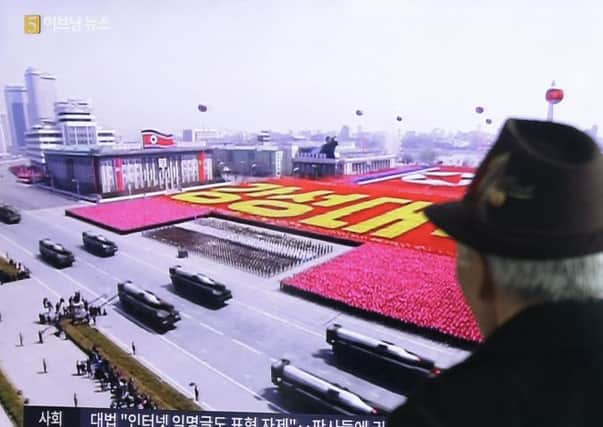Korean language shift causing North-South tension


North Korean defectors are often baffled by all the English-based words they hear in South Korea, like “shampoo,” “juice” and “self-service” – none of which is used in the reclusive North.
South Koreans, meanwhile, are puzzled by homegrown North Korean words like “salgyeolmul,” which literally means “skin water”. (That’s “skin lotion” south of the border.)
Advertisement
Hide AdAdvertisement
Hide AdThe two countries share a language, but the Korean Peninsula’s seven-decade split has created a widening linguistic divide that can result in misunderstandings, hurt feelings and sometimes laughter. The gap has grown so wide that scholars say about a third of everyday words used in the two countries are different.
North and South Koreans are generally able to understand each other given that the majority of words and grammar are still the same. But the differences show how language can change when one half of the country becomes an international economic powerhouse and the other isolates itself, suspicious of outside influences.
America’s huge cultural influence through its military presence, business ties and Hollywood has flooded the South Korean vernacular with English loan words and “konglish,” which uses English words in non-standard ways, like “handle” for steering wheel, “hand phone” for cellphone and “manicure” for nail polish.
In North Korea’s view, all that is just further evidence that the South is an American cultural colony. When Pak Mi-ok first arrived in South Korea after her defection in 2002, she was told by a waitress at a restaurant that water was “self-service,” an English phrase she had not heard before.
Too shy to admit she didn’t understand, she ended up going without water during her meal.
“I worried the waitress would look down on me,” said Ms Pak. She started out working at restaurants but struggled to understand customers. “I thought they spoke a different language,” she said.
Ms Pak gradually picked up on the new lingo, and in a recent interview she used words like “stress” and “claim” that aren’t heard up in the North.
The North’s isolation and near-worship of the ruling Kim family has also skewed the language. “Suryong” is the revered title for the North’s founding leader and his son, Kim Jong Il, the father of the current ruler, Kim Jong Un. But in the South it simply means a “group leader.”
Advertisement
Hide AdAdvertisement
Hide AdPyongyang is so eager to “purify” its language under its guiding philosophy of self-reliance that it vigorously eliminates words with foreign origins and uses homegrown substitutes. Shampoo is called “meorimulbinu,” or “hair water soap,” and juice is “danmul,” or “sweet water.”
Such differences fascinate and amuse South Koreans, who love to examine them on quiz and comedy shows.
Misunderstandings can arise to seemingly innocuous Korean phrases like, “Let’s do lunch sometime,” which those in the South frequently use as a friendly ending to conversations, even with casual acquaintances.
But newly arrived North Korean defectors take such invitations literally, and are often dismayed or offended when they don’t get a follow-up phone call.
“If someone uses such empty words in North Korea, they’ll see their relations with others cut off and be branded as a faithless person,” said a defector who asked not to be identified because of worries that doing so would put family members in the North at risk.
Linguists say it takes about two years for North Korean defectors to feel comfortable talking in South Korea and the gap widens when it comes to terms used in things like medicine.